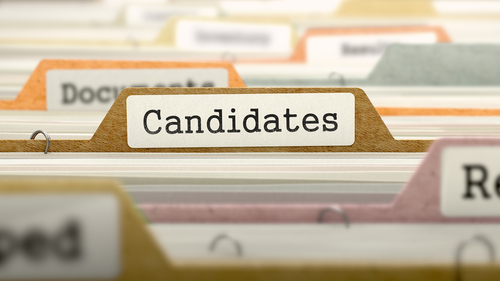
Recruiter Confessions: What Are We Really Looking for on Your Resume?
By: Danielle Buonincontri, MBA, SPHR
We’ve all read articles on how to craft the perfect resume and make it stand out. Many of us may have even paid a decent chunk of change to professional resume writers to give our resume a makeover in hopes of landing that perfect new job. Not to mention the countless hours we have all spent tailoring custom cover letters for each individual job we apply too only to receive a standard “rejection” email that leaves us wondering if anyone even viewed our resume in the first place.
So, what am I looking for when I sort through the thousands of resumes, I receive on a weekly basis? While I can’t speak for every recruiter out there, after nearly eight years in recruiting on both the corporate and agency sides, I have a fine-tuned idea of what recruiters and hiring managers desire. So, what makes you pop on paper?
First off, ditch the cover letter! That’s right, you heard me. While this is appreciated when applying for an internal role, in most cases it is just another barrier between me and what I really need to see, YOUR RESUME! Save the personal touch and fluff for the Thank-You note once you’ve secured, and rocked, the actual interview.
Now that there is nothing standing between me and your resume, let’s get down to business. There are the obvious things I’m looking for such as contact information, work experience, education, and skills but before we can even get to that, we need to address the elephant in the room. Most recruiters won’t admit this, but I can honestly tell you that I spend about 10 seconds looking at a resume before deciding if the candidate is worth calling or passing on. So, what does that mean for you?
FORMATTING! It’s honestly all about the format. Ask yourself the following questions when evaluating your resume: Is it easy to read? Is it clear what I do in my current role? Am I highlighting the skills needed to get the job I am applying for? Nothing makes me skip over a resume faster than tiny font, unaligned bullets, and lengthy paragraphs. Make sure your resume looks clean, you are using appropriate font, bullets and spacing, and you are listing your detailed experience in chronological order.
Your contact information should be at the top in slightly larger font along with including your full name, phone number, email address, and LinkedIn profile. Skip the nicknames and avoid using that embarrassing email address from the seventh grade. Including your LinkedIn profile will eliminate any confusion, because I will try to find you, especially if you have a common name. And PLEASE do not put your photo on your resume, it’s just NOT necessary and can be very unprofessional.
The next section should be your personal summary. We all know you’re a “qualified candidate, looking for a new position that allows growth and longevity” blah blah blah, aren’t we all. Make yourself stand out, PERSONALIZE it! “Being an Outside Sales Executive for more than five years, with outstanding, proven numbers, ensures that I am well-qualified for this role. I look forward to assisting “XYZ company” with your bottom-line revenue”. Or whatever you’re trying to accomplish, you get my point; DON’T be a lemming. If you are applying for several jobs make sure to edit this as appropriate; there is nothing worse than receiving a resume for an Account Executive role that states they are looking for a career in Finance. Bottom line PAY ATTENTION.
Now let’s talk about experience and education… if you are a seasoned professional, lead with experience and then education. Be sure to leave off graduation dates, it just doesn’t matter. However, if you are a recent grad with limited work experience, lead with education and include your graduation date. This allows me to understand why your experience is on the lighter side. Be sure to include correct dates of employment, titles, and company name. Avoid using “internal” jargon, make sure you are giving a high-level overview of your job duties along with including relevant, specific skills and software used. Even if your title states Instructional Designer, which may be exactly what I’m looking for, I’m skimming for key words and if they’re not jumping off the page in the first 10 seconds I’m on to the next. The lesson here is that attention spans are shorter than ever! Use bullet points, key words, and make sure I can clearly read the experience you are brining to the table.
Last but certainly not least, keep your resume brief without holding back relevant experience; the days of the one-page resume are long gone! A good rule of thumb is to stick to your three most recent positions, or your last ten years of experience. Think of your resume as a dating profile, a snapshot of what you bring to the table, giving just enough information so the recruiter swipes right; after all you want to make sure you leave something to talk about during the interview.
Follow our Recruiter Blog and Social Media:

